Rome's Colossus of Constantine
British artist digitally reconstructs original from remaining fragments to create new statue of Roman emperor
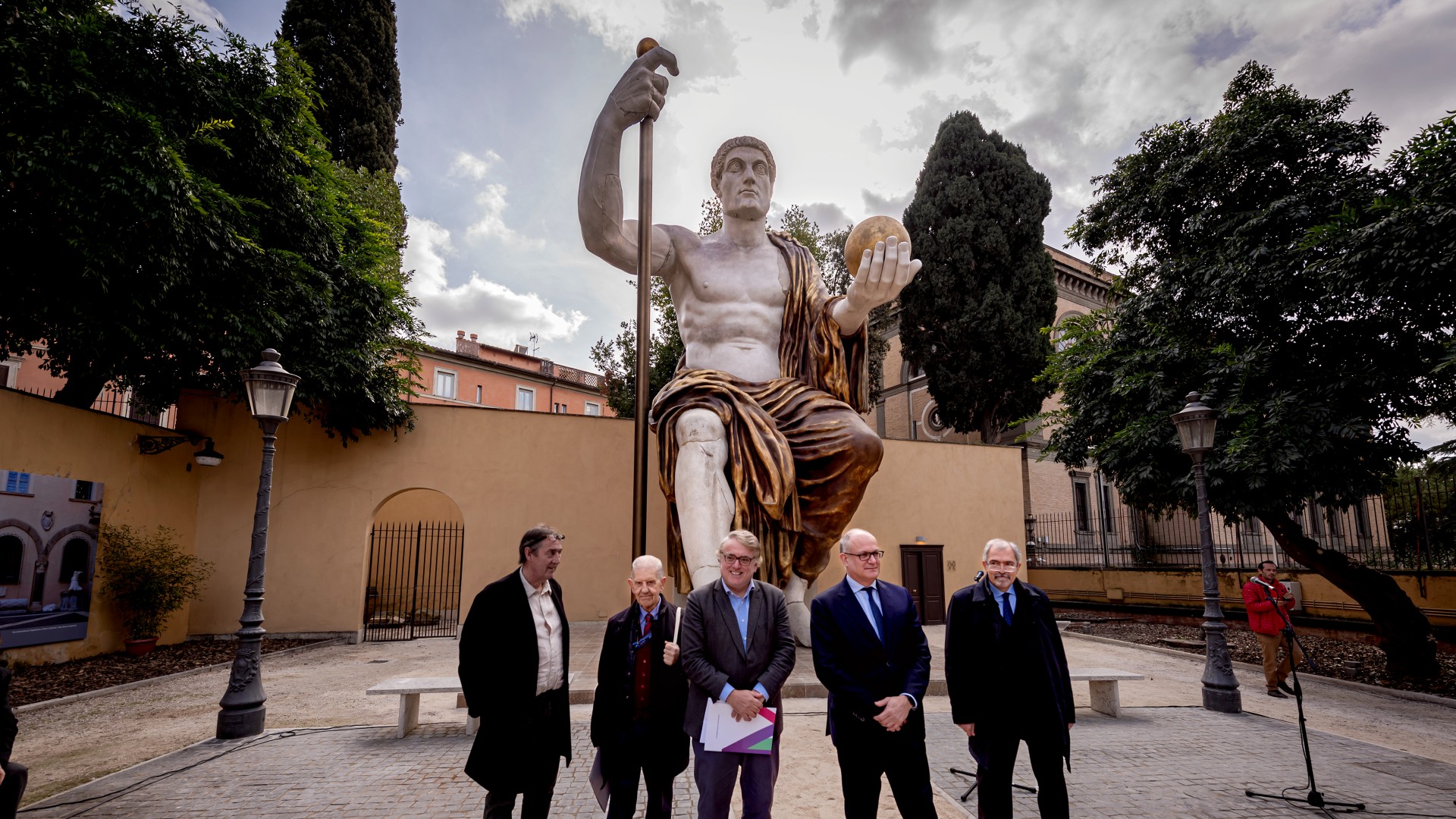
A free daily email with the biggest news stories of the day – and the best features from TheWeek.com
You are now subscribed
Your newsletter sign-up was successful
A viral social media trend last year suggested the Roman Empire is frequently in men's thoughts. Now, an Ancient Roman's digital footprint is in the headlines too.
Fourth-century ruler Constantine, who was the first Roman emperor to convert to Christianity, is living up to his moniker of "Constantine the Great" with a "massive" new statue in Rome, said The Associated Press (AP).
Authorities unveiled the 13-metre-high structure on Tuesday: a replica of a statue of Constantine from about AD312, created using 3D modelling technology from scans of the nine remaining original "marble body parts".
The Week
Escape your echo chamber. Get the facts behind the news, plus analysis from multiple perspectives.

Sign up for The Week's Free Newsletters
From our morning news briefing to a weekly Good News Newsletter, get the best of The Week delivered directly to your inbox.
From our morning news briefing to a weekly Good News Newsletter, get the best of The Week delivered directly to your inbox.
Body parts and 'British wizardry'
For more than 500 years, visitors keen to see the "colossal statue" that once graced Rome's Forum have "made do with the bits and pieces stacked in a courtyard of the Capitoline museum", said The Times. These remains, dug up in 1486, comprise an "enormous marble head with staring eyes", feet, an elbow, a shin, wrist, knee, hand and an arm.
But with 3D scanning, research and "some British wizardry", artist Adam Lowe managed to recreate the whole statue at his Factum Foundation workshop, a Madrid-based non-profit that makes digitally reconstructed replicas of cultural masterpieces.
"Its scale is breathtaking and it is very emotional to see Constantine looking out across Rome again," said Lowe, whose reproduction is being displayed at the Capitoline Museums in Italy's capital.
'The violence of power'
Historians believe the original statue depicted the god Jupiter, before Constantine had it rededicated to himself.
A free daily email with the biggest news stories of the day – and the best features from TheWeek.com
"What was frustrating is that there is a statue of Jupiter at the Hermitage in St Petersburg we would have liked to scan," said Lowe, "but couldn't because of the Russian invasion of Ukraine."
"Jupiter would have had a beard, and on the face of the statue you can see traces of a beard," Salvatore Settis, an archaeologist and art historian who worked with Lowe, told The Times. The beard was chipped off to make it resemble clean-shaven Constantine.
Despite the loss of godlike facial hair, the statue still "inspires awe in the smaller viewers below", said news agency AP – just as Constantine intended, according to officials.
"In this statue there's not just beauty, there's the violence of power," said Settis, representing the Fondazione Prada, the cultural arm of the Milan-based fashion house that paid for the project.
A copy of the reproduction, funded by British investor Jonathan Ruffer, has also been made, and will be displayed in the County Durham town of Bishop Auckland.
That's more fitting than it sounds, Lowe told The Times, because Constantine was running the forces patrolling Hadrian's Wall and was proclaimed emperor in York.
Harriet Marsden is a senior staff writer and podcast panellist for The Week, covering world news and writing the weekly Global Digest newsletter. Before joining the site in 2023, she was a freelance journalist for seven years, working for The Guardian, The Times and The Independent among others, and regularly appearing on radio shows. In 2021, she was awarded the “journalist-at-large” fellowship by the Local Trust charity, and spent a year travelling independently to some of England’s most deprived areas to write about community activism. She has a master’s in international journalism from City University, and has also worked in Bolivia, Colombia and Spain.
-
 6 of the world’s most accessible destinations
6 of the world’s most accessible destinationsThe Week Recommends Experience all of Berlin, Singapore and Sydney
-
 How the FCC’s ‘equal time’ rule works
How the FCC’s ‘equal time’ rule worksIn the Spotlight The law is at the heart of the Colbert-CBS conflict
-
 What is the endgame in the DHS shutdown?
What is the endgame in the DHS shutdown?Today’s Big Question Democrats want to rein in ICE’s immigration crackdown
-
 A dreamy long weekend on the Amalfi Coast
A dreamy long weekend on the Amalfi CoastThe Week Recommends History, pasta, scenic views – this sun-drenched stretch of Italy’s southern coast has it all
-
 Villa Treville Positano: a glamorous sanctuary on the Amalfi Coast
Villa Treville Positano: a glamorous sanctuary on the Amalfi CoastThe Week Recommends Franco Zeffirelli’s former private estate is now one of Italy’s most exclusive hotels
-
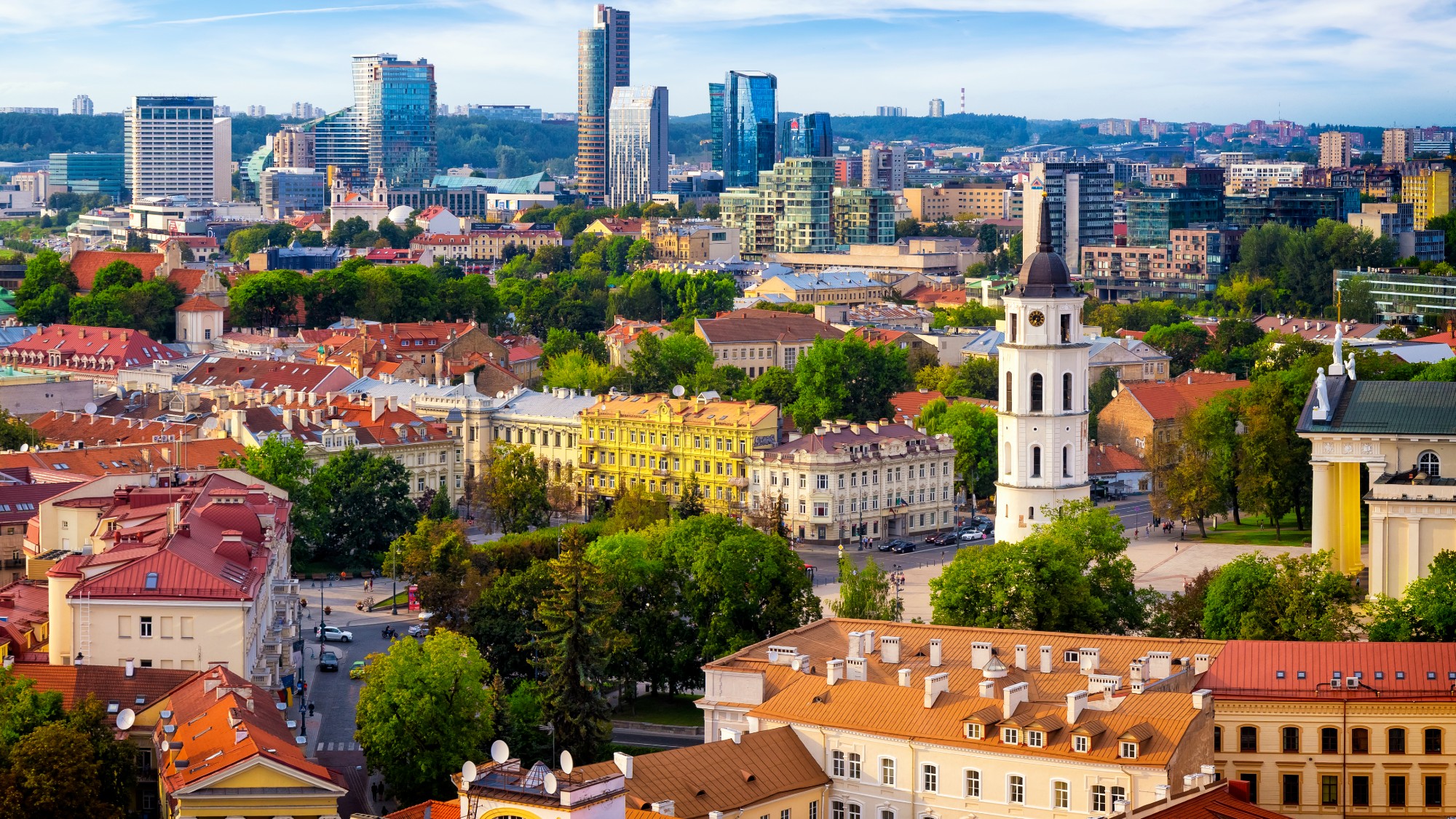 Exploring Vilnius, the green-minded Lithuanian capital with endless festivals, vibrant history and a whole lot of pink soup
Exploring Vilnius, the green-minded Lithuanian capital with endless festivals, vibrant history and a whole lot of pink soupThe Week Recommends The city offers the best of a European capital
-
 In Okinawa, experience the more tranquil side of Japan
In Okinawa, experience the more tranquil side of JapanThe Week Recommends Find serenity on land and in the sea
-
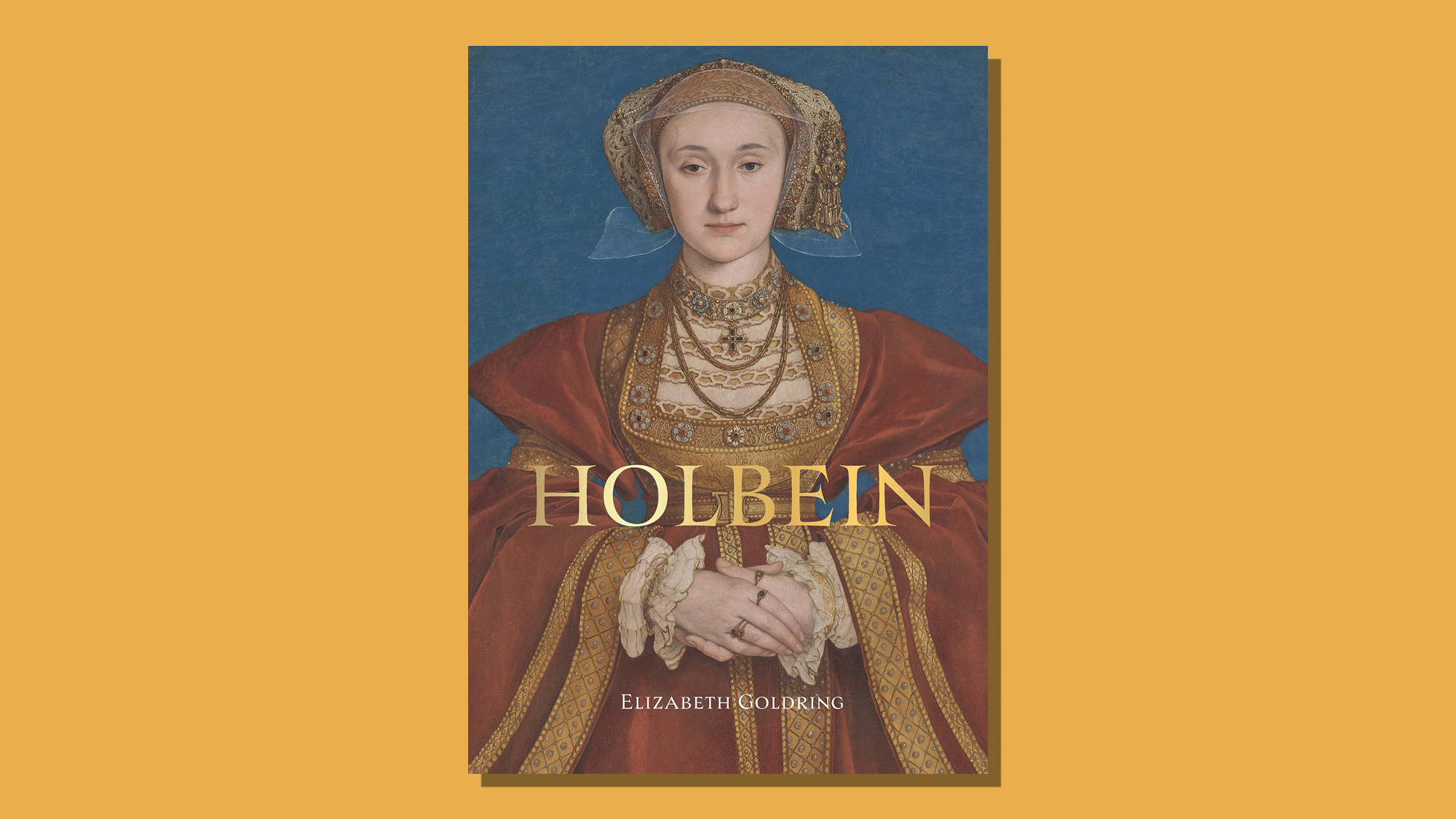 Holbein: ‘a superb and groundbreaking biography’
Holbein: ‘a superb and groundbreaking biography’The Week Recommends Elizabeth Goldring’s ‘definitive account’ brings the German artist ‘vividly to life’
-
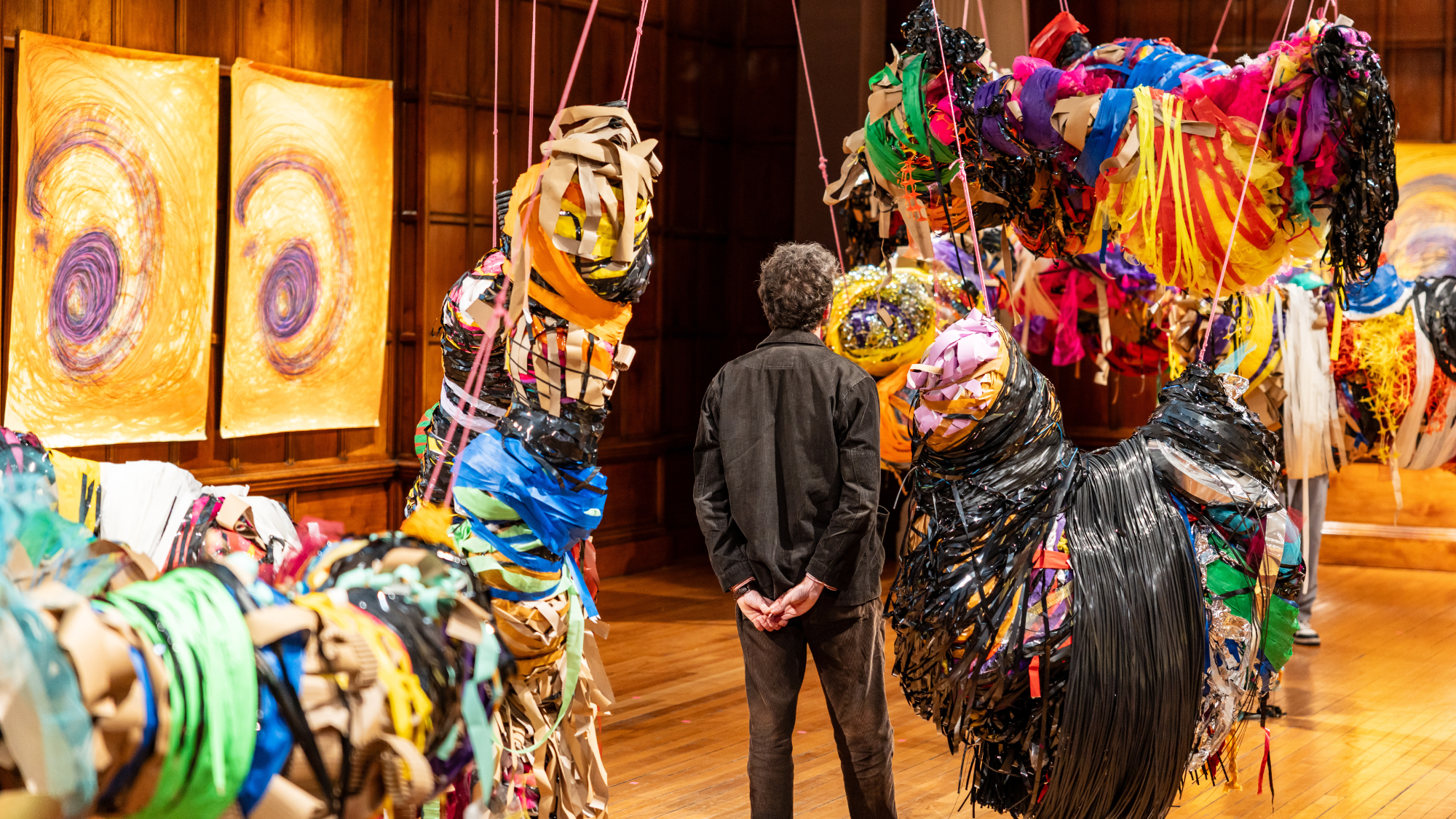 Nnela Kalu’s historic Turner Prize win
Nnela Kalu’s historic Turner Prize winTalking Point Glasgow-born artist is first person with a learning disability to win Britain’s biggest art prize
-
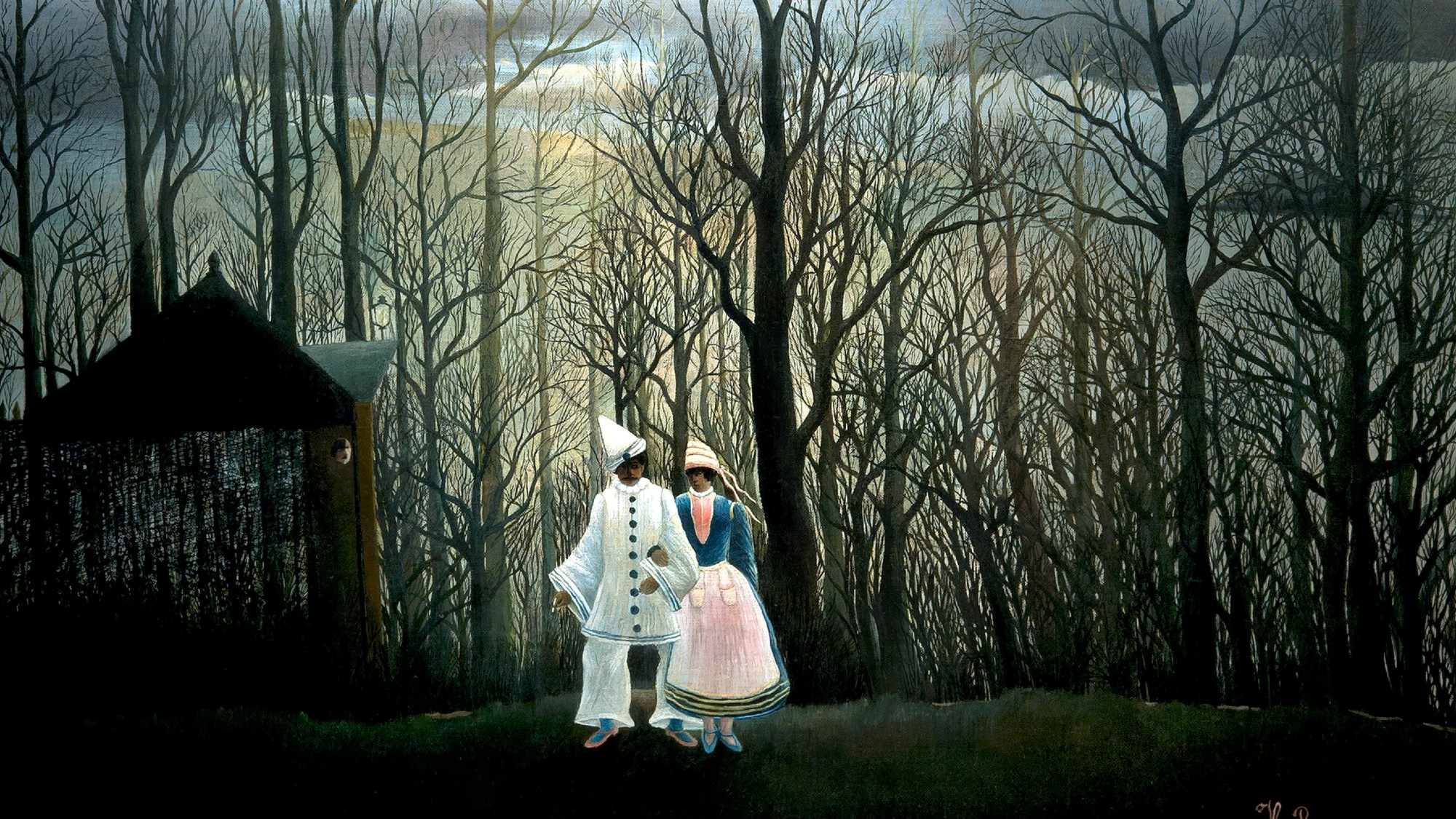 Henri Rousseau: A Painter’s Secrets
Henri Rousseau: A Painter’s Secretsfeature Barnes Foundation, Philadelphia, through Feb. 22
-
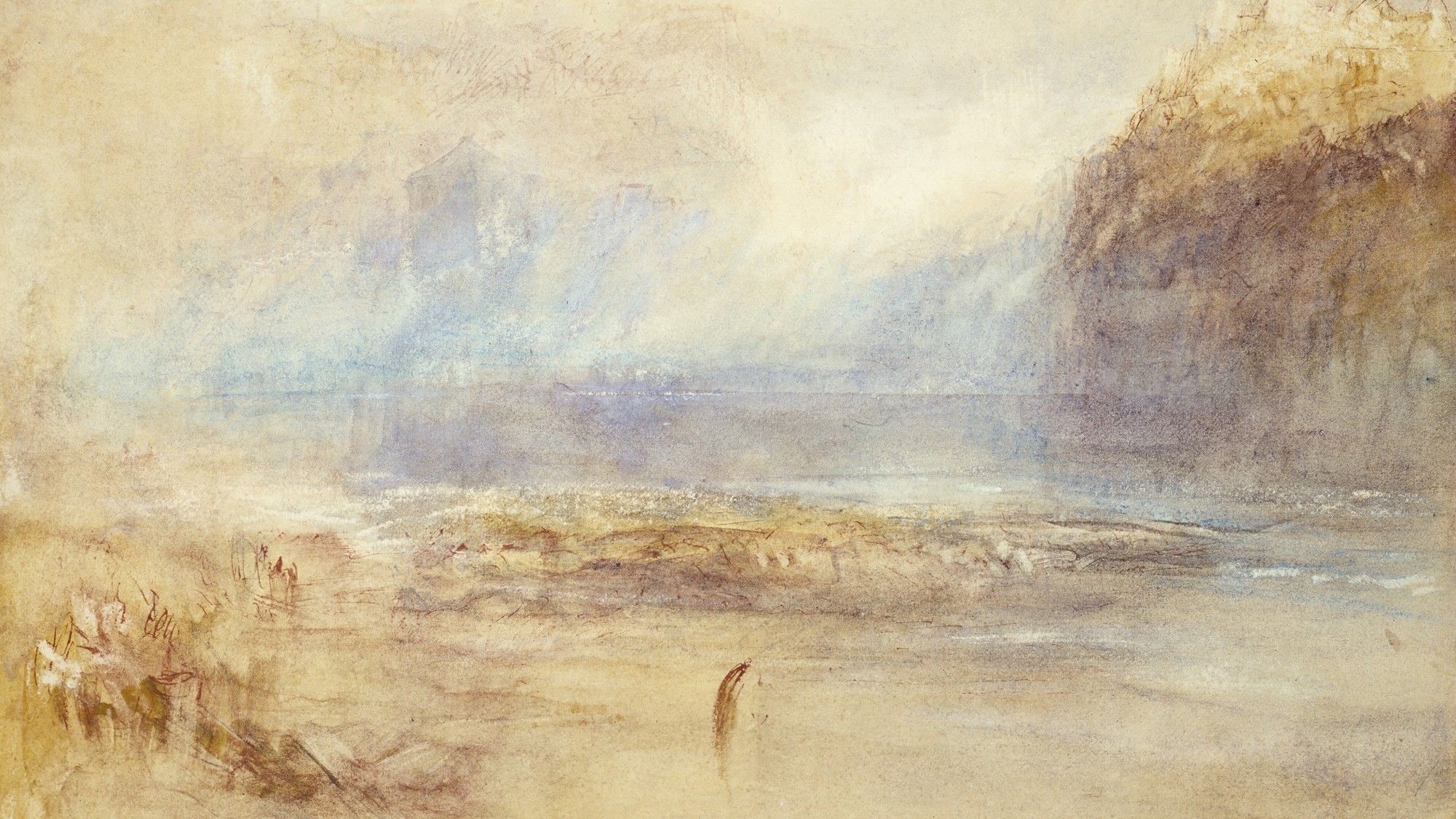 Turner: The Secret Sketchbooks – a fascinating portrait of the great painter
Turner: The Secret Sketchbooks – a fascinating portrait of the great painterThe Week Recommends BBC2 documentary examines the rarely seen sketchbooks of the enigmatic artist